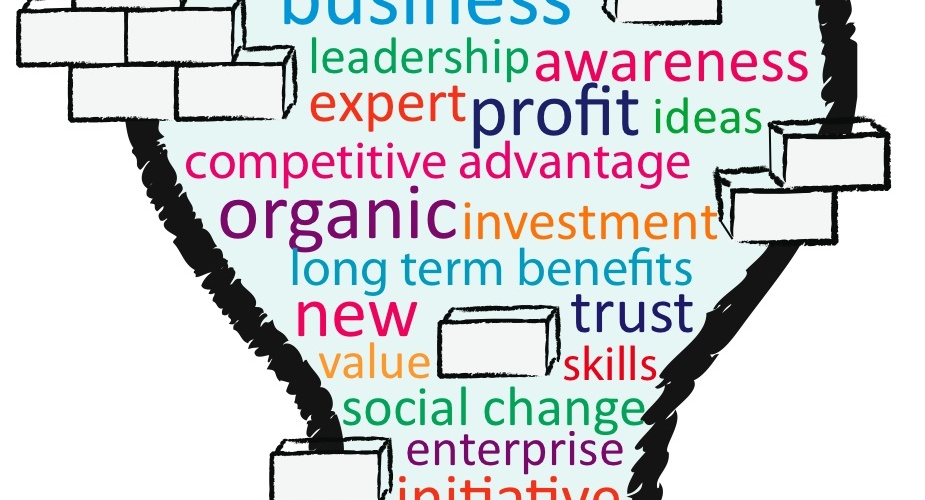Once a social enterprise fails, the effects are felt by not only the stakeholders but also the society. It is important that social enterprises disclose to the public the challenges that led to their failure because populations or ecosystems that these businesses serve are affected. According to research carried out by Failure Institute, the following are main reasons why many social enterprises fail.
Inadequate infrastructure and resources
This is defined by inadequate funds for social entrepreneurs. Many social entrepreneurs do not have skills that are needed when raising funds for business. To make an impact, social entrepreneurs need to have financial skills that will help them not only to obtain investment but also grow their businesses.
The legal environment
There is no sufficient legal framework, if any, to support and protect social enterprises. This is causing many social enterprises to fail.
The board of directors
In most social enterprises, the board of directors is constituted of founding partners. This leads to a conflict of interest and lack of transparency within the management of the social enterprise. Lack of commitment by founders and lack of clarity in the areas of responsibility is one of the main reasons why social enterprises fail.
Unlike other enterprises, social enterprises directly depend on personal qualities of entrepreneurs. This includes their skills to attract investors, members, and volunteers.
Reference
https://www.weforum.org/agenda/2017/06/3-reasons-why-social-enterprises-fail-and-what-we-can-learn-from-them/
https://nextbillion.net/why-do-social-enterprises-fail-new-research-reveals-three-reasons-and-some-surprises/
Month: September 2017
Benefits of Social Change to Business
Incorporating social change into the business begins with understanding and having a solid grasp of the social role of the business in the society. The business should not only be driven by the need to make profits but also the need to make a difference in the society.
Social change plays an important role in ensuring that business gains its maximum potential in the market. Companies that are perceived to be socially responsible in the society are highly perceived in the market as compared to their counterparts who have not adopted such a strategy. It is through this positive perception in the market that they can not only increase their market share, but they are also able to retain highly skilled employees.
A company that has chosen to be socially involved gains a large pool of investors due to its positive reputation in the market. This gives it a higher level of competitive advantage against its competitors in the market. The business also benefits from the positive media coverage which indirectly exposes it to other markets hence increasing its share in such markets. Also, social enterprises penetrate easily to new markets.
References
Click to access NBS-Systematic-Review-Social-Change1.pdf
https://www.forbes.com/sites/csr/2012/02/15/why-social-change-is-good-for-business/
The Three Books That Social Entrepreneurs Should Read
Many social entrepreneurship books challenge people across all sectors to imagine the world where markets work for the most vulnerable people in the world and then find out ways to make that world possible. The following are three books that social entrepreneurs should read:
‘The Unfinished Social Entrepreneur’ by Jonathan Lewis
This book focuses on Jonathan Lewis’ meditation on the heart-ripping, heart-mending, heart-happy joy of social justice. As the author put it, the book is not a step-by-step manual for how to be a social entrepreneur. The book is more of a spiritual guide than a practical one.
‘The Innovation Blind Spot: Why We Back the Wrong Ideas, and What to Do About It’ by Ross Baird
Baird writes that people who focus on impact investing are likely to have education, impact over where funds go, and privilege. In his book, Baird calls people with education, privilege, and influence to be “one-pocket-thinkers,” people who align their business with their longing to change the world for the better.
‘In the Company of the Poor: Conversations with Dr. Paul Farmer and Fr. Gustavo Gutiérrez’ by Fr. Gustavo Gutierrez and Dr. Paul Farmer
This book focuses on why we do what we do. In their book, Gutierrez and Farmer emphasize that it is important to gain proximity to the poor. According to them, walking with the poor allow you to view them as partners, not pariahs. Associating with the people also help you to design solutions with them, not for them.
References
https://www.forbes.com/sites/willyfoote/2017/09/14/the-four-books-every-social-entrepreneur-should-read/3/#3c95609c64df
http://www.businessinsider.com/best-books-for-entrepreneurs-to-read-2016-1?IR=T
Three Emerging African Social Entrepreneurs You Should Know
Social entrepreneurs are disrupting industries, making money and doing good. They are bold and fearless. They are also the face of a coming generation of change makers that are willing to risk everything to make the world a better place. Here are three emerging African social entrepreneurs you should know:
Andrew Mupuya
Mupuya is a Ugandan who displayed a knack for entrepreneurship when he was young. Back in 2008, when the government proposed a ban on plastic bags to reduce pollution, by then 16-years old Mupuya saw an opportunity. He started to produce environmentally friendly paper bags. He raised his starting capital for the business by collecting and selling plastic bags to a recycling plant. Today, he runs Uganda’s first registered paper Bag Company and employs about 19 people.
Thato Kgathlanye
When people see discarded plastic bags as waste, Thato Kgatlhanyse sees them as building blocks necessary for social change. This South African entrepreneur is the co-founder of Rethaka, a social enterprise that manufactures durable school bags from plastic bags. Each bag has a solar panel that is used as a light come night.
Joel Mwale
Joel Mwale is a Kenyan social entrepreneur and a serial social innovator. His desire to purify water came after he contracted a water-borne disease when he was young. So, at 16 years of age, he started SkyDrop Enterprises, a business that produced affordable, clean drinking water for his community. Although he later sold the company to international investors, he has since founded Gigavia, an online platform that allows students to share learning materials.
References
https://amaphiko.redbull.com/en/magazine/africa-s-most-exciting-social-entrepreneurs
https://amaphiko.redbull.com/en/magazine/africa-s-most-exciting-social-entrepreneurs
Boston is the Best City in the United States to be a Social Entrepreneur
According to a new ranking of the top ecosystems, Boston is the best city in the United States to be a social entrepreneur. In the city, social entrepreneurs find it relatively easy to find funding from the public sector and private investors. The overall awareness of social entrepreneurship in the city is also commendable.
A social entrepreneur tries to combine doing good with doing well, and usually weigh do-good mission as equally and nearly as important as business results. The city of New York was ranked No. 4 while New Orleans was racked No. 21. The report looked at how raising funds differ for women and men entrepreneurs, and people of different ages and races.
New York and San Francisco top lists of the best cities for start-ups. Boston topped San Francisco and New York on the social entrepreneurship because it was more affordable. On the social entrepreneurship, Washington, D.C. tops other cities because of the amount of government support available for mission-oriented businesses.
The report ranked the cities across four measures: regulation, human capital, funding and quality of life. Based on a survey of over 400 social entrepreneurs, the top five cities are:
1. Boston
2. San Francisco
3. Washington, D.C.
4. New York, N.Y.
5. Chicago, Ill.
References
https://www.forbes.com/sites/elizabethmacbride/2017/08/24/the-top-cities-for-social-entrepreneurs/#5d020125371d
http://fortune.com/2016/05/11/boston-tops-san-francisco-as-best-u-s-city-for-digital-entrepreneurship/





